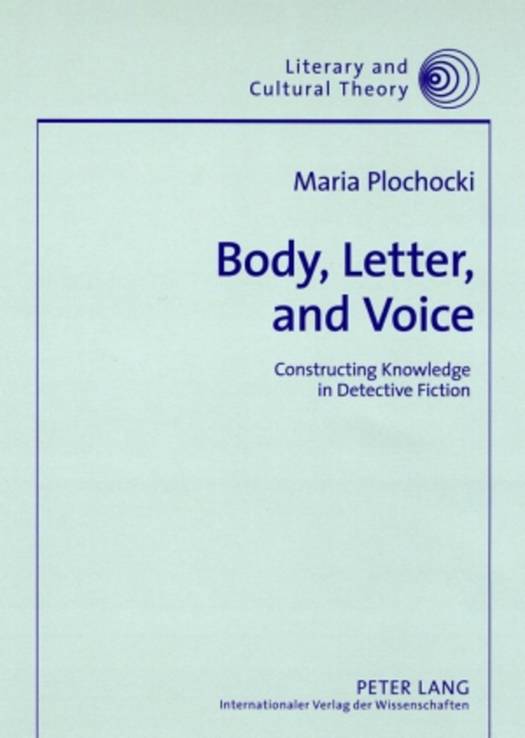
- Afhalen na 1 uur in een winkel met voorraad
- Gratis thuislevering in België vanaf € 30
- Ruim aanbod met 7 miljoen producten
- Afhalen na 1 uur in een winkel met voorraad
- Gratis thuislevering in België vanaf € 30
- Ruim aanbod met 7 miljoen producten
Zoeken
€ 72,95
+ 145 punten
Omschrijving
The author treats, in historical and philosophical terms, the contributions of the traditionally marginalized genre of detective fiction to epistemology: how detective fiction not only traces the progression of knowledge and its discovery, as has been the traditional model for understanding this genre, but, in fact, constructs it through narrative. Particular focus is on Colin Dexter, creator of the Inspector Morse character and series. This work also links detective fiction to more legitimate, accepted realms of literature and criticism: semiotics (the reading of clues, with the body as a major one); epistolary fiction, long hailed as an early form of the modern novel; and heteroglossia, an important aspect of Marxist theory, here linked to the power struggles and imbalances produced by the pursuit and construction of knowledge.
Specificaties
Betrokkenen
- Auteur(s):
- Uitgeverij:
Inhoud
- Aantal bladzijden:
- 216
- Taal:
- Engels
- Reeks:
- Reeksnummer:
- nr. 29
Eigenschappen
- Productcode (EAN):
- 9783631563830
- Verschijningsdatum:
- 14/04/2010
- Uitvoering:
- Paperback
- Formaat:
- Trade paperback (VS)
- Afmetingen:
- 147 mm x 208 mm
- Gewicht:
- 294 g

Alleen bij Standaard Boekhandel
+ 145 punten op je klantenkaart van Standaard Boekhandel
Beoordelingen
We publiceren alleen reviews die voldoen aan de voorwaarden voor reviews. Bekijk onze voorwaarden voor reviews.











